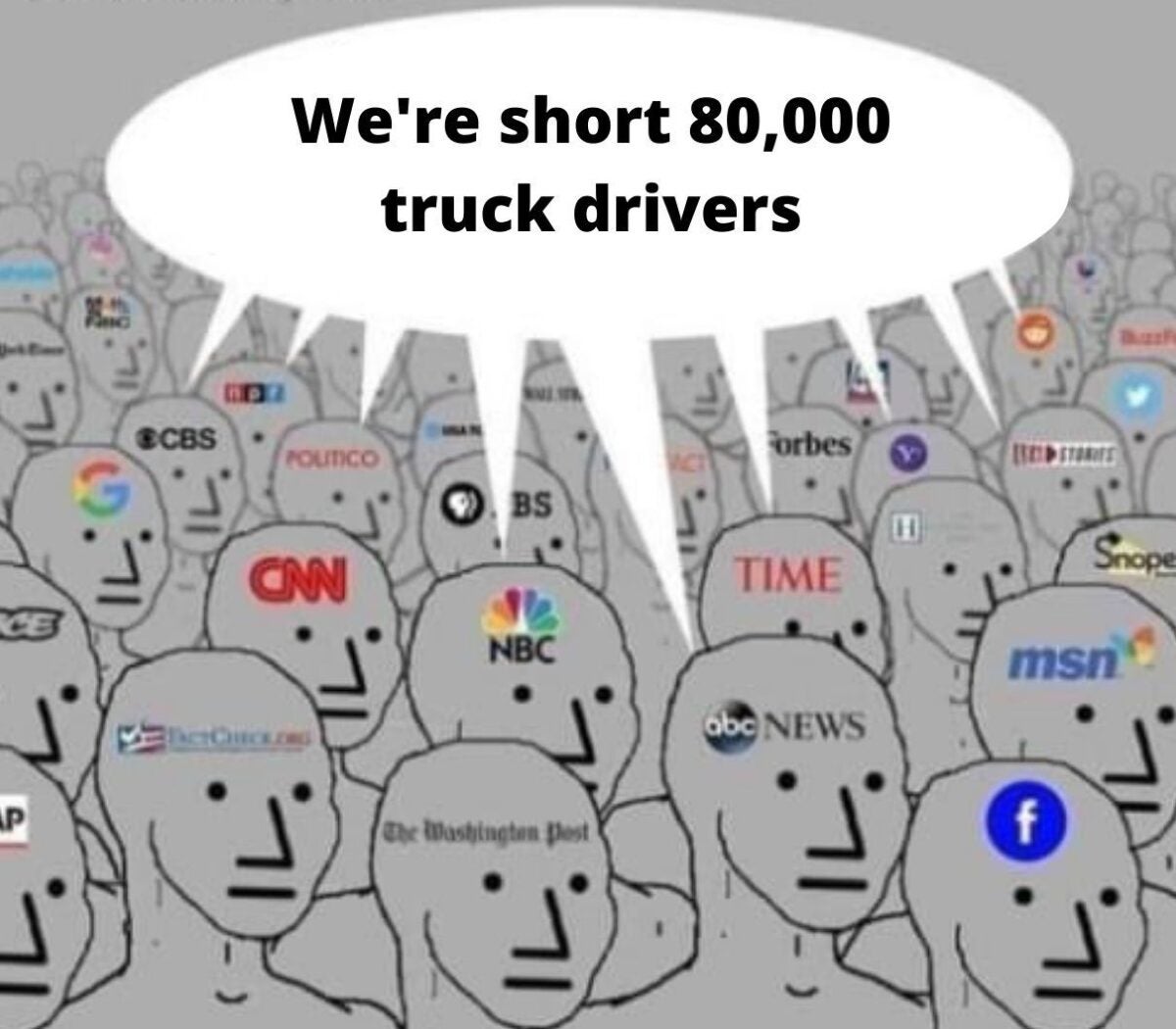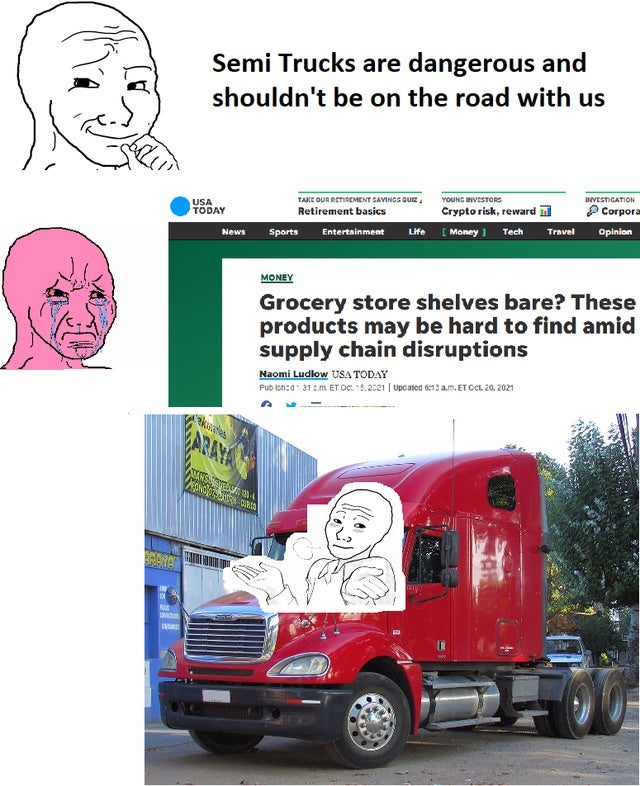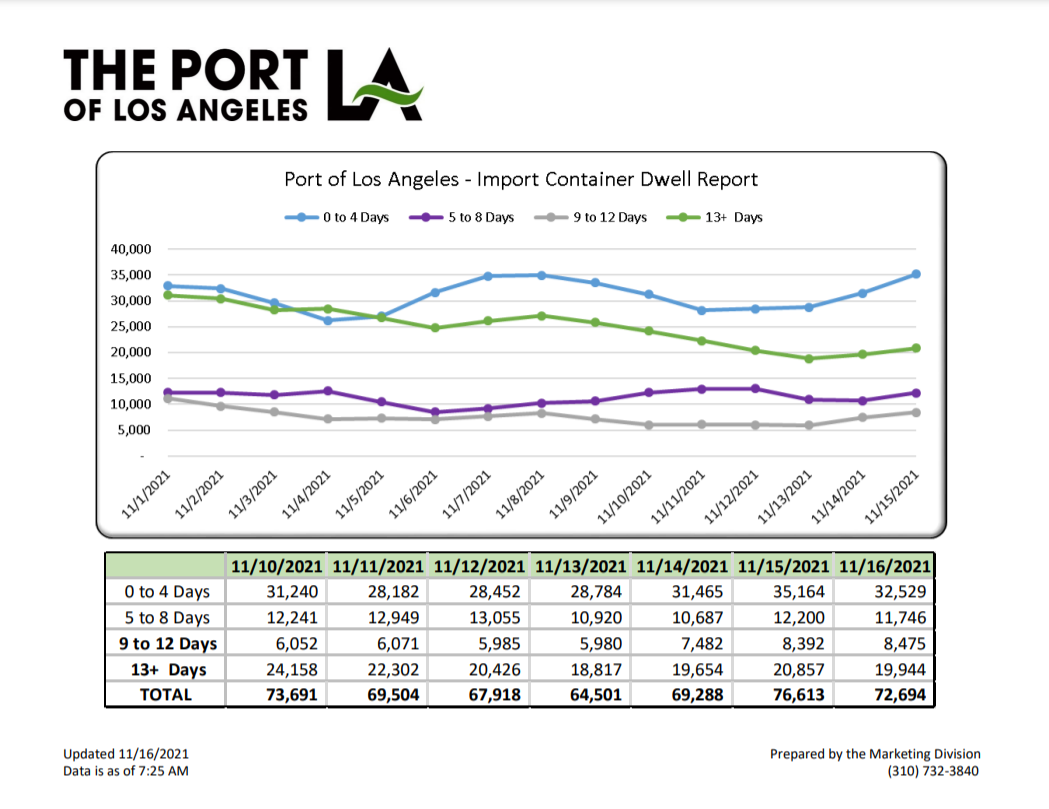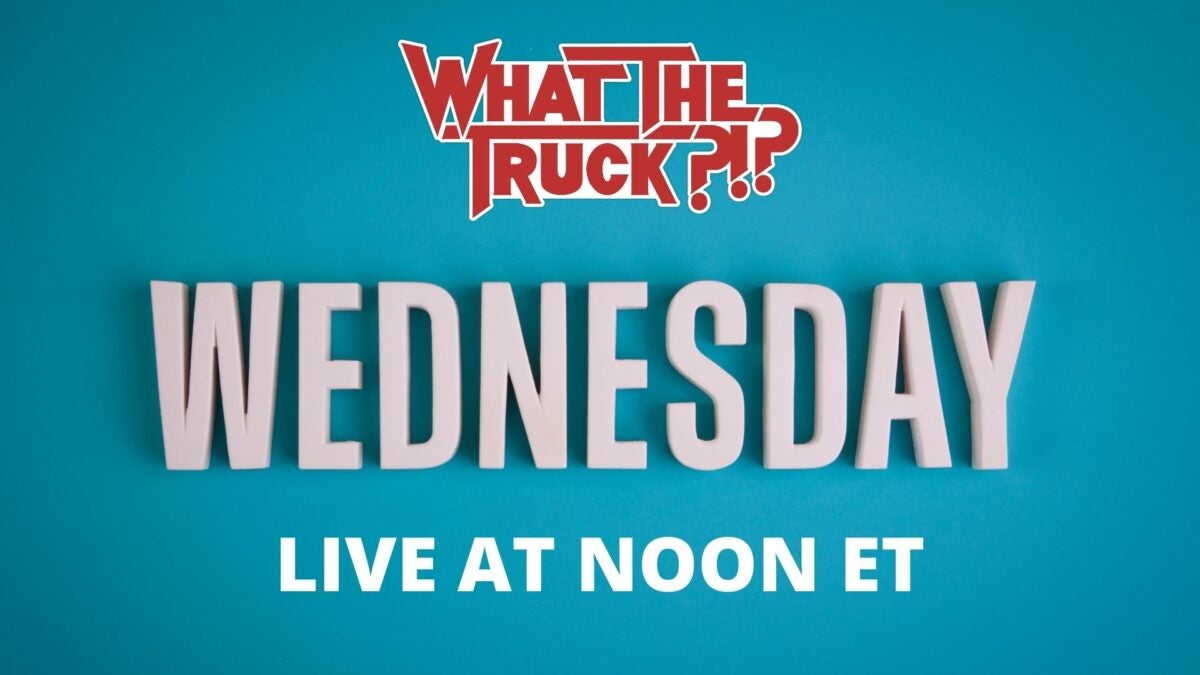Welcome to the WHAT THE TRUCK?!? newsletter presented by Convoy. In this issue, is the driver shortage a myth; are port fees a bluff; supply chain strikes heated seats and more.
Is there really a driver shortage?

Read all about it — Last month American Trucking Associations President and CEO Chris Spear and chief economist Bob Costello revealed the results of a new study saying that the industry was short 80,000 drivers. It didn’t take long for CNN, Fortune, CNBC, WSJ, etc. to not only report on those numbers but to also blame current supply chain woes on a lack of truckers. In fact, citing those figures, some trucking leaders have renewed calls for immigrant and teenager hiring.
“The ATA estimates that over the next decade, we need to hire another million truck drivers to meet the needs of the demand that’s coming.” — C.H. Robinson President and CEO Bob Biesterfeld
Narrative violation — While some of the large carriers and the ATA continue to beat the driver shortage drum, over the past 16 months there’s been a surge in new single truck operations, according to data from consultancy FTR. While the ATA’s report claims that we’re down 30% on drivers since the start of the pandemic, it doesn’t align with what FTR data shows. FreightWaves’ Mark Solomon reports, “Through October, the Federal Motor Carrier Safety Administration has authorized more than 92,000 for-hire carriers, according to an FTR analysis of FMCSA data.” In 2020 there were 59,000 approved applicants and in 2018 there were 44,000. That “almost certainly means we have more drivers today” than before the pandemic, Avery Vise, FTR’s vice president of trucking, told Solomon. Port truckers and the Harbor Trucking Association have been especially vocal about the issue being a lack of chassis, not a lack of drivers.
Does it matter? — You may be wondering why this is such a heated debate. I think the answer to that lies in the impasse that we find between independent carriers and mega fleets. Look no further than the most recent American Transportation Research Institute (ATRI) industry issues survey. Driver responses and the motor carrier responses varied widely on what the industry’s top priority should be. While the drivers selected parking and pay as their biggest concerns, large carriers once again went with the driver shortage. In a business with near 100% turnover, drivers see claims of a shortage as little more than a deflection from dealing with concerns that cause current drivers to leave the business, like parking, pay and detention.
Agree to disagree — While the ATA and independent owner-operators may not agree on every industry issue, a shot across the bow on a recent episode of MSNBC’s “The Cross Connection with Tiffany Cross” may prove to be galvanizing.

Better left unsaid — During the segment on labor shortages, Cross said, “[Trucking] is an industry populated by a lot of white men over the age of 55. This group of people overwhelmingly voted for Trump. Some people have talked about, you know, aggressive truck drivers cutting them off or not being helpful.” Meanwhile, her guest, CrossCountry Truck Driving School owner and President Pamela Day, was simply there to try and recruit more women into the industry. I don’t know if Cross helped Day’s pitch. For most truckers, it was just another case of a mainstream outlet blaming drivers while looking down on their profession.
Are port fees a bluff?

Give it a week — Monday was supposed to be the big day when the congestion fee hammer was going to drop on most containers that had been at the port for excessive periods of time. While the fees were intended for the carriers, it became clear immediately that they’d be passed on to every importer they legally could be. In fact, since the fees were announced, we’ve been discussing on WTT just how little these fees do to change the behavior of shippers that are using the port as warehouse space, as many of those shippers already have favorable contracts with the terminals and steamship lines that protect them from new tariffs. Fortunately for the shippers who do not, by noon Monday the twin ports of Los Angeles and Long Beach decided to hold off on the fees for another week.
“If there’s cargo in those boxes that is not very valuable, you may end up with a lot of abandoned cargo that is going to stay at the terminal for much, much longer.” — Hapag-Lloyd CEO Rolf Habben Jansen
Out of left field — One shipper, under the condition of anonymity, told me, “Why am I getting charged this fee when I have zero influence on when these goods are made available by the port?” The National Retail Federation has slammed the fees as adding substantial costs to the supply chain just as retailers and consumers are contending with historic inflation. Rich Roche, vice president of international transportation at Mohawk Global Logistics, said, “Chassis are already in short supply and this will artificially suck out the rest of the containers that may be sitting in there [at terminals] that didn’t need to be on a chassis and now they’re going to be parked somewhere.”
Unpopular — So why the delay? “There’s been significant improvement in clearing import containers from our docks in recent weeks,” said Port of Los Angeles Executive Director Gene Seroka. According to a Port of LA news release, “The twin ports have seen a decline of 26% combined in aging cargo on the docks.” But is that true? As of Monday, there were a record 83 container ships at anchor and loitering. FreightWaves’ Greg Miller reports, “According to Los Angeles’ data platform with Port Optimizer, 45% of containers at the APM Terminals facility were still past deadline, dwelling for nine days or more, as of Monday.”
Latest supply chain victim: Heated seats

Winter is coming — Just in time for Jack Frost to nip at your bits, the car dealer is out of heated seats. What is the world of driver comfort and privilege being reduced to? The Detroit Free Press reports, “GM said it would no longer offer driver and passenger heated seats and heated steering wheels as standard or optional content on certain 2022 model year cars and trims.” GM spokesman David Barnas said the move is temporary and a result of semiconductor supply constraints. How have consumers taken the news? Paul Zimmermann, vice president and partner of Matick Chevrolet in Redford Township, Michigan, said, “The reality of where we’re at right now is folks are somewhat desensitized, whether it’s inflation or lack of product across so many industries, from furniture to food. It’s becoming somewhat normal, unfortunately.”
Sponsored content

Power-only love — Can small fleets and owner-operators really drive their business with power-only loads? Truck drivers love power-only loads — just show up at a shipper’s facility, hook up the trailer, do an inspection and go! And less time waiting means you can haul more loads. But often these opportunities are only accessible to large asset-based carriers, leaving many owner-operators and smaller carriers on the sidelines.
“The main upside is that the wait time is very short, we are in and out of facilities in 45 minutes versus more than four hours for live loads. Also, Convoy allows us
to have power-only headhauls and power only backhauls, which allows us to work more miles.” — Eduardo Canales of Canales Trucking
Get hitched — Now more carriers are finding power-only loads across the USA with Convoy.
Who knew?

More than meets the eye — Regardless if you suffer from pica or just like the taste of adhesives, The New York Times has some good news for you: The stickers on fruit are edible. The FDA told the Times in an email, “Because produce stickers have contact with food, the intended use of these stickers is the subject of premarket approval by the Food and Drug Administration, to ensure that any substances that may migrate to food from the use of the sticker is safe.” In fact, not only is there no negative downside to eating the stickers, it may also help out your composite pile.
WTT this week

Wednesday — Jason Provonsha, CEO at Steam Logistics; Grant Goodale, co-founder of Convoy; “Mr. Supply Chain” Daniel Stanton; Molson Hart, CEO at VIAHART; and Trent Zuberi, associate manager of logistics finance and freight payable at Kraft Heinz.
Friday — Lauren Gleason, deputy port director of business development at Massachusetts Port Authority; Dale Young, vice president of warehousing and distribution at World Distribution Services; guests from Redwood Logistics; and trucker Graham Jamrock.
Catch new shows live at noon ET Mondays, Wednesdays and Fridays on FreightWavesTV, FreightWaves LinkedIn and Facebook or on demand by looking up WHAT THE TRUCK?!? on your favorite podcast player.
Now on demand
What if we just folded all the shipping containers?
Is the Supply Chain Disruption Task Force helping?
A song to say goodbye

Onward — Got to say goodbye to FreightWaves’ outgoing and Emerge’s incoming president, George Abernathy, at F3. Take a look.
Subscribe to the show
Or simply look up WHAT THE TRUCK?!? on your favorite podcast player.
All FreightWaves podcasts can also be found on one feed by looking up FreightCasts wherever you get your podcasts.
Want a new WHAT THE TRUCK?!? shirt or hat? Check out the swag store.
One love,
Dooner










